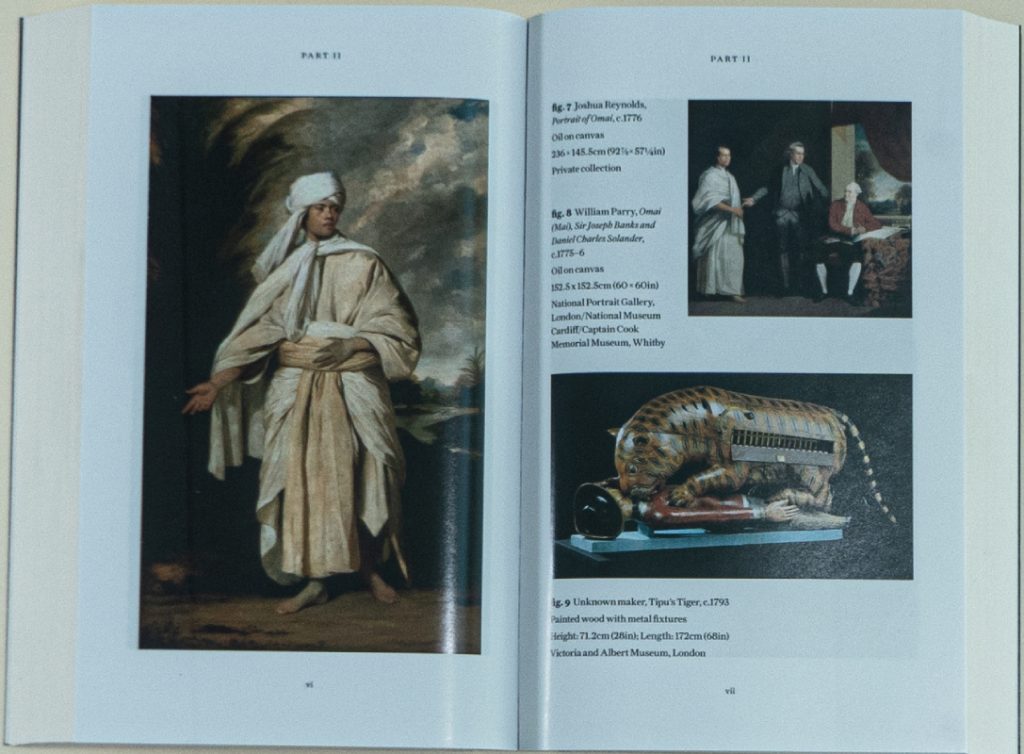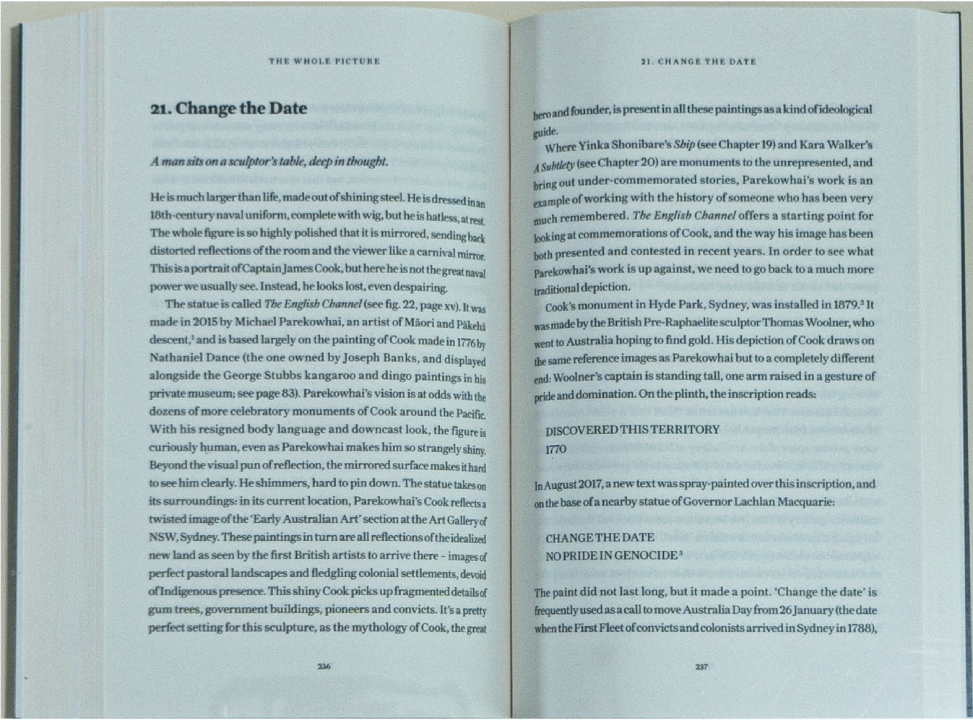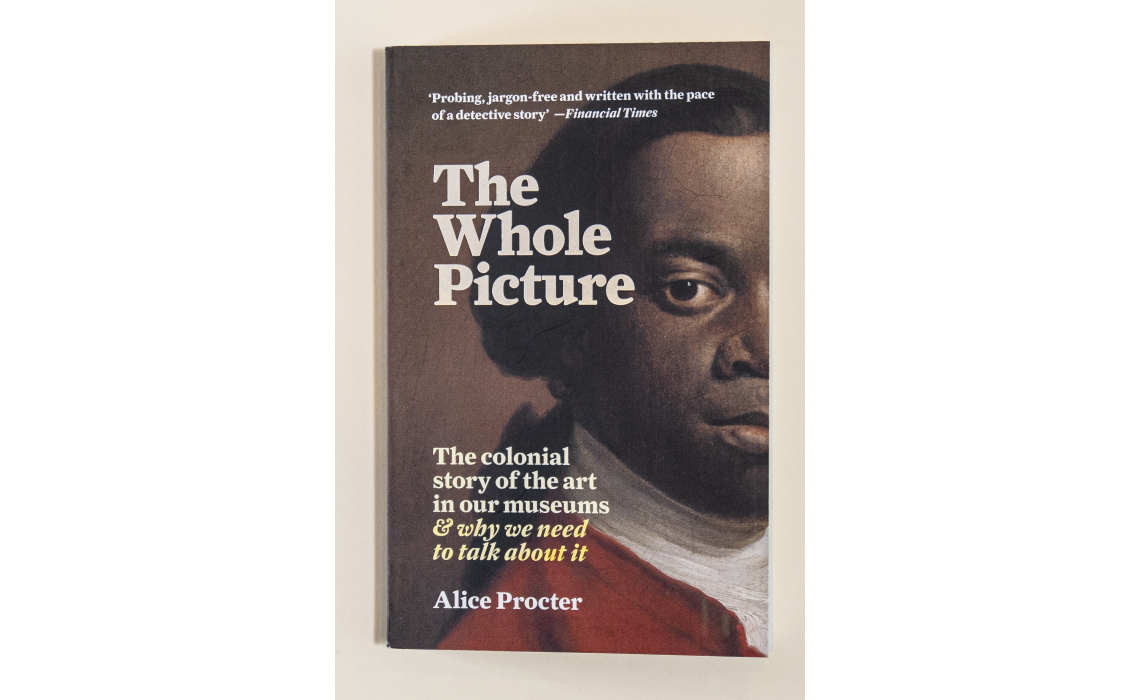Publisher: Cassell
octopusbooks.co.uk
Price: $24.00
Canvas rating: *****
Art institutions worldwide are still guilty of perpetuating neo-colonialist attitudes in the way they conduct their business, according to this provocative book by Alice Procter. Calling for the urgent need to decolonize art spaces through alternative curatorial strategies, she brings the issue into sharp focus in The Whole Picture: The colonial story of the art in our museums & why we need to talk about it. Procter, the creator of Uncomfortable Art Tours — alternative spins on traditional museum/gallery tours that aim to illuminate everything the wall text dares not say — is not simply asking for more from the art world, but trenchantly demanding it.

The book’s cover features a Portrait of an African, attributed to the eighteenth-century artist Allan Ramsay; Zoomed in close to his face, we only see half of the sitter and glimpses of very European dress on a Black man. His one visible eye stares straight into ours, containing a demand, a question, something disturbingly searching. We are not given the whole picture of him.
Self-described on her Instagram as a “professional museum screamer”, Procter goes on to spend close to 300 pages presenting us with carefully researched arguments for how the art world and its institutions have been failing marginalized groups for centuries. There are four main sections, categorized by type of space: Palace, Classroom, Memorial and Playground. Procter uses each to springboard into various ancient and contemporary unresolved and unjust dilemmas, failures or, put simply, crimes, that have occurred in art history all over the world, from the Indian Tipu Sultan’s “Tiger” embodying Western appropriation of South Asian art to the political and ethical complicity of an audience in the USA licking the sugar off a Kara Walker sculpture. Each section’s argument is near airtight, and yet still comes to a close on an ambiguity that leaves room for the reader to consider the problems at hand and assess the various possible solutions.

Ultimately, The Whole Picture is a much-needed reminder amid the fluctuating conversations around restitution, postcolonialism, and Eurocentrism that, underneath the bureaucratic media-pandering high gates of the ‘art institution, “a museum is a place we can go to find and tell stories about ourselves and others” And we are way overdue on telling them justly and fully — or even telling them at all?



